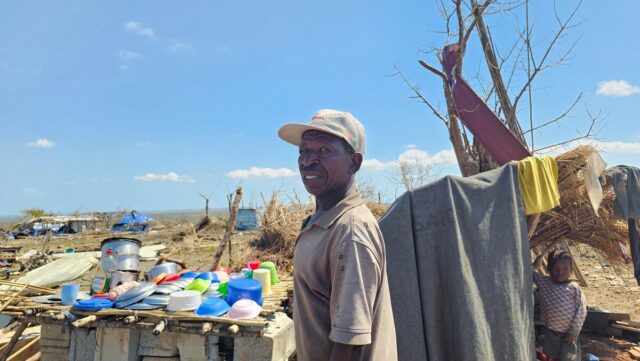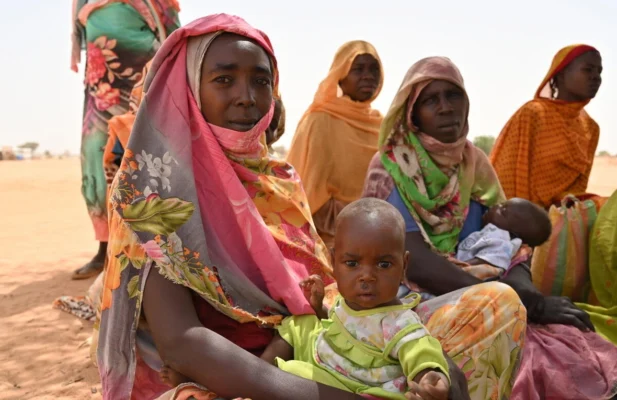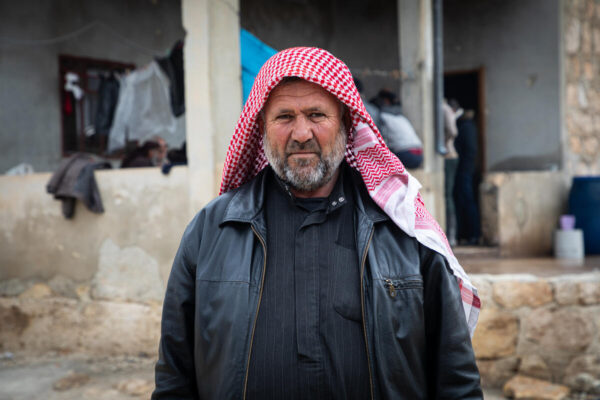
A Sudanese family arrives at the border town of Adre in Chad in October 2024 after fleeing violence in Sudan’s Darfur region. © UNHCR/Andrew McConnell
UN Refugee Agency assisted in 43 emergencies globally last year; one-third of new declarations were linked to climate.
GENEVA – New wars, unresolved conflicts and a spike in climate-related disasters resulted in appalling levels of death, destruction and displacement last year, forcing UNHCR’s global operations to respond to intensifying humanitarian needs.
According to the 2024 Impact Report: Response to new emergencies and protracted crises published today, UNHCR, the UN Refugee Agency, declared 26 new emergencies last year, seven at the most severe level. Overall, UNHCR responded to or managed 43 emergencies, including 17 that continued from 2023.
“Sadly, the number of crises globally remains extremely high, but UNHCR is swiftly deploying where we are needed most, by land, air and sea,” said Ayaki Ito, Director of UNHCR’s Division of Emergency, Security and Supply. “Integrating better technology into our systems is bringing new efficiencies. Enhanced early warning systems and data analytics have improved how we deliver aid and better prepare us for when new emergencies hit.”
For the second year in a row, UNHCR extended the emergency response to the brutal war in Sudan and its regional impact, reflecting the persistence and magnitude of the needs. Another emergency declaration was to protect and deliver life-saving aid to refugees and displaced people in Lebanon and Syria.
Extreme weather events, notably heavy rains and severe floods, forced UNHCR to issue a record nine climate-related emergency declarations in a single year – around 1 in 3 of those declared in 2024 – to relieve forcibly displaced and host communities across Africa, Asia and Latin America. Climate-related disasters impacted areas already hosting refugees and people displaced by war, worsening disease outbreaks and destroying livelihoods and critical infrastructure.
During 2024, UNHCR strengthened efforts across Africa to ensure the inclusion of forcibly displaced populations in response to the mpox outbreak and ramped up operations to address ongoing and intensified crises in the Democratic Republic of the Congo, Myanmar, Ukraine and the Darien.
“Our teams are in 130 countries, with others on standby to deploy,” Ito added. “They work around the clock to alleviate suffering with life-saving assistance, coordinating with partners and refugees to find solutions. But funding is not keeping up with growing needs. Flexible and early support from donors is crucial to allow us to act immediately, wherever needed.”
UNHCR dispatched 5.1 million relief items worth $45.8 million from seven global stockpiles to assist around 6 million people last year. This is on top of the prepositioned emergency supplies deployed from regional and local warehouses. UNHCR trained 240 staff and standby partners in emergency response, ready to deploy within 72 hours; 132 were deployed last year to contribute their expertise, from gender-based violence prevention to site management, health, data and logistics. Almost 9 million displaced people accessed information from the UNHCR Help websites.
For more information, please contact:
Olga Sarrado Mur, sarrado@unhcr.org, +41797402307
Originally published by UNHCR on 24 January 2025





